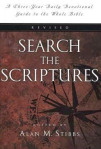Study 52 From The Book of Acts Is: Acts 27:1-20
- Follow the voyage on a map. What were the outstanding events the
voyage, and what encouragements did Paul receive during the early part of
the journey? Has God given you an unexpected blessing in a difficult time?
- Why was Paul’s advice
disregarded at first, but heeded later? Cf. verses 9-12 and 21-25.
Note. Verse 9 ‘The fast’: the Day of Atonement,
which came in the latter part of September, and was considered by the Jews as
marking roughly the close of the safe season for sea travel.


